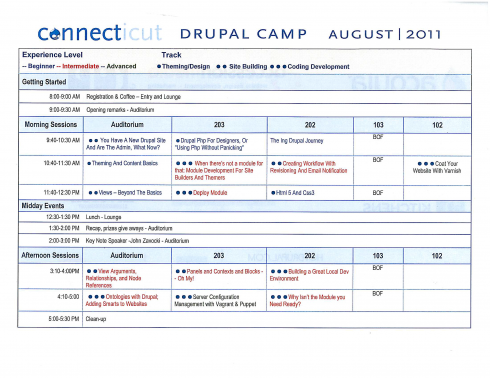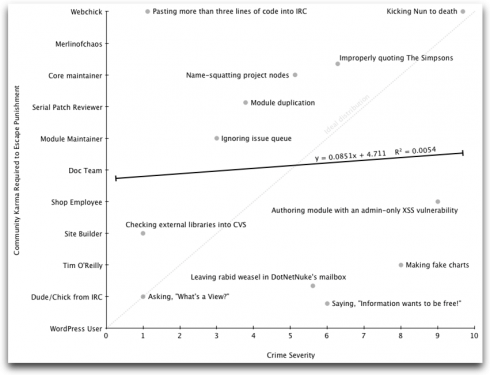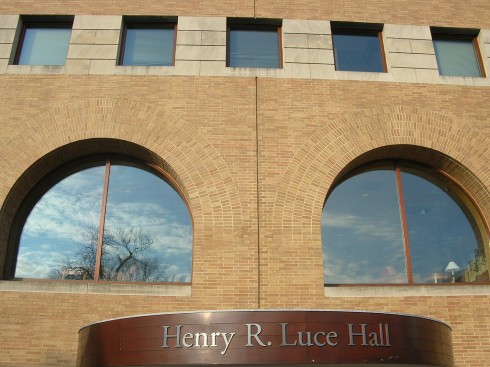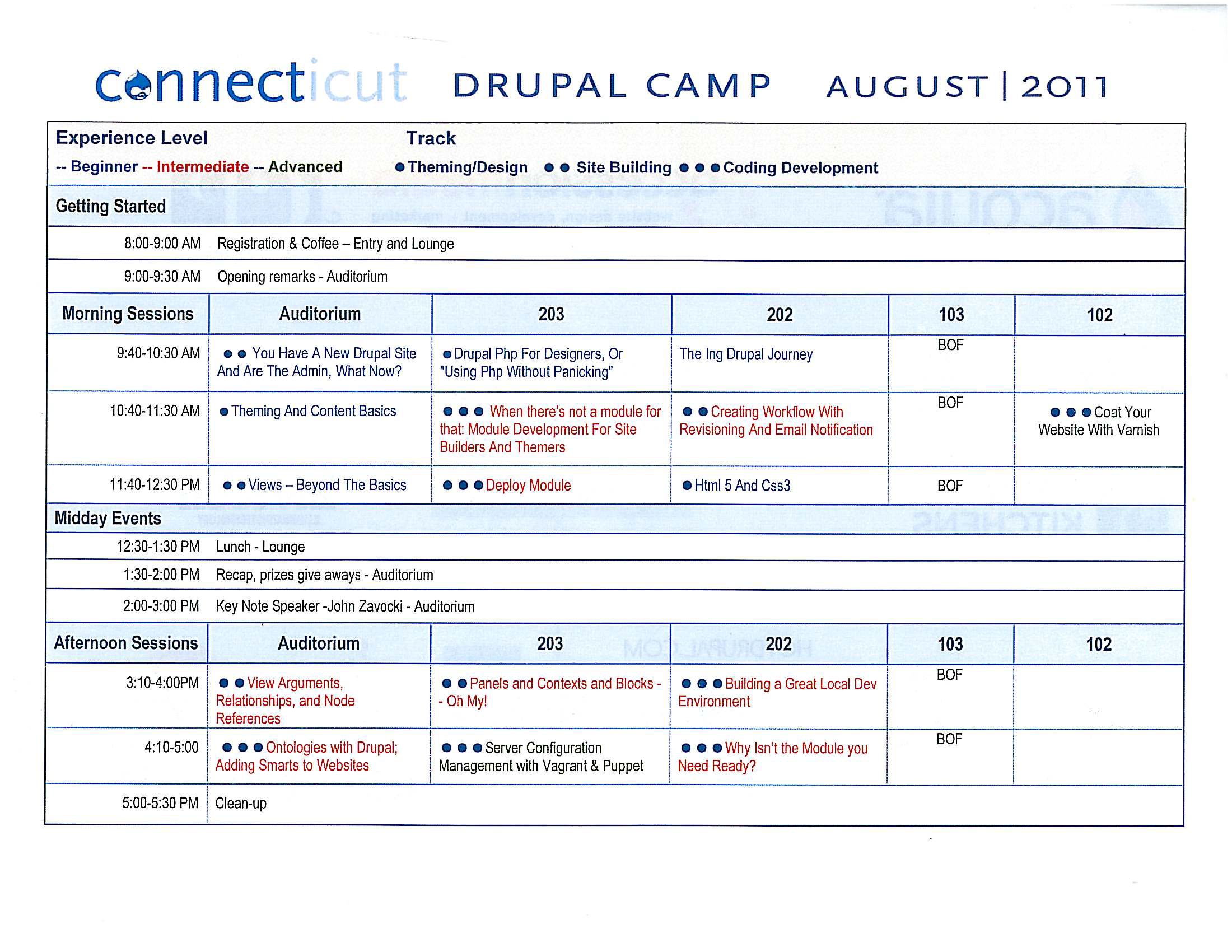Last weekend I went down to New Haven for DrupalCamp CT 2011, at Yale. It was a smaller camp (compared to Design4Drupal Boston, or DrupalCon) but had excellent content and showed there is a strong Drupal community in the heart of the nutmeg state. (We did take a group photo but I haven’t seen it surface yet).
Even at a smaller camp there were multiple parallel tracks of presentations, and I found myself wishing talks had been recorded so I could see some of the ones which overlapped, my inability to be simultaneously two places at once hold me back yet again.

My favorite sessions of the day were Benjamin Melançon‘s “When there isn’t a module for that” and John Zavocki‘s keynote “From the Margins to the Center.”
Ben’s talk, which was an updated version of a talk he gave at Western Mass DrupalCamp (which I was not able to get to, but for which slides are available), covered the basics of Drupal module development using the x-ray module as an example. Nothing new for an experienced developer, but presented with clarity, color commentary promoting the community ethic, and humor, including this graph of “Community Karma Required to Escape Punishment” for specific crimes:

He was also the lead author (coordinator? driving force?) of The Definitive Guide to Drupal 7, and brought a copy to show. That is one serious tome of Drupal knowledge – over a thousand pages! (Ok, I’m including the index – but it really is massive).
One of Ben’s core themes – the ethics of contributing back to the community in multiple ways and at multiple levels – also ran through John Zavocki’s keynote. (John uses a mindmap to present rather than slides – he’s put two versions of the mindmap up on his site).
Zavocki – an engaging presenter with more than a touch of self-deprecating humor – starting by announcing this was his first keynote, and therefore was either going to go extremely well or suck entirely: turns out it was the former. A self-described fourteenth-century Venetian painter with post-modernist and feminist tendencies (or was it sympathies?), John focused on what professional ethics might mean to those in the Drupal community, the number of web developers who get to open source via non-traditional or ad-hoc career paths (what, my PhD in literature isn’t standard training for web development?), the need for project management and specialization (“find out what you’re good at and do that – hire people to manage you”), and the importance of reputation and long-term relationships.
In the end, the five-point outline he posted on his blog captures all the right themes, but misses all the crucial energy:
- Your reputation is the most important thing that you have in our development community
- If you are not allocating human resources for Project Management, you cannot say that you are doing have ethical business practices
- Clients want software engineering (results) not Computer Science (theory)
- Get the right person for the right job
- The most important thing you can do is contribute back to the project.
After the “formal” section of the keynote was over, the audience kept feeding on his energy, asking questions and engaging with him on his sense of where the Drupal community is going. I wish I had some video of Zavocki jumping up and down on stage pointing to the mind-map projected behind him, if only to convey some essence of the experience.
It was also good to see such a strong Drupal community at Yale – yet more evidence of how Drupal is enabling higher education institutions. During the lunch break I had a chance to walk a bit around campus. The camp venue – Luce Hall – is on Hillhouse Avenue, a very storied street which Wikipedia tells me both Charles Dickens and Mark Twain declared “the most beautiful street in America.” Luce Hall itself doesn’t quite fit the description, being instead one of “Yale’s architectural embarrassments.”

It’s Henry R. Luce Hall, of course, after the Yale Alumnus, founder of Time, Life, and Fortune, also, later, the staunch anti-communist and author of “The American Century” – I wonder what he would have made of the impact of the internet on mass media publishing, as well as the open source movement and its core ethos of cooperation?
What would the “Lord of the Press” have made of citizen journalism, the rise of the hyperlocal, and a real-time web in which nearly anyone can become the source of news?
